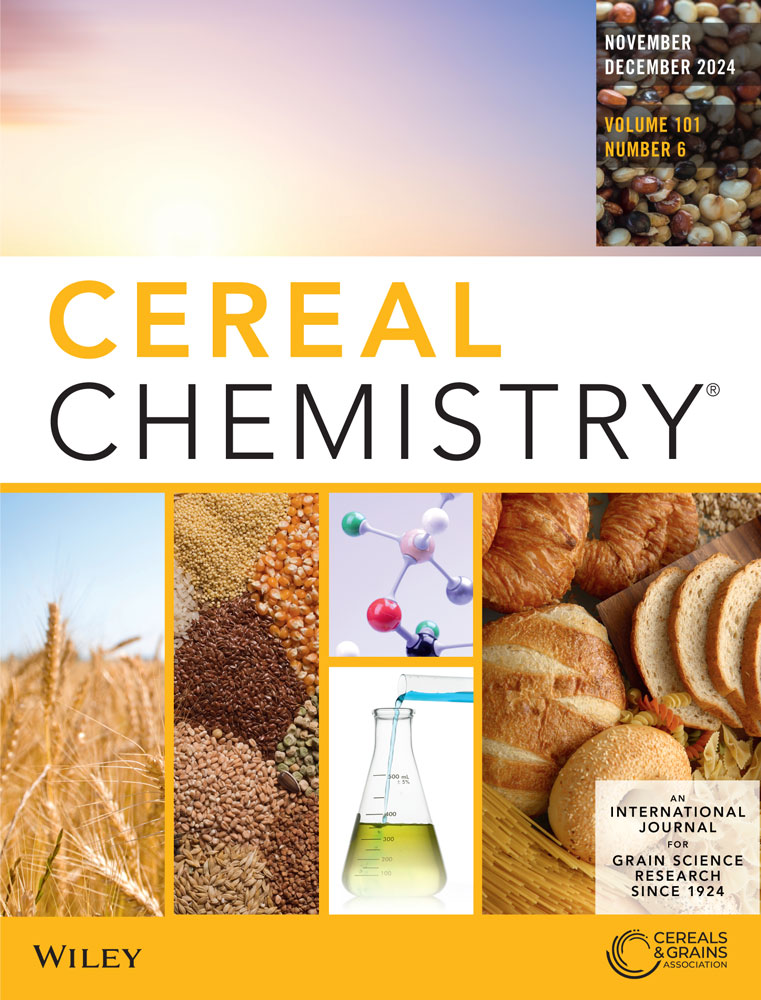QTL mapping for wheat ferulic acid concentration using 50 K SNP chip in a recombinant inbred line population of Zhongmai 578/Jimai 22
Abstract
Background and Objectives
Ferulic acid is a prominent bioactive compound found in wheat grains, known for its beneficial health effects, prompting significant interest from breeders and producers. The aim of this study was to identify new quantitative trait loci (QTL) to aid in the development of wheat varieties with increased ferulic acid concentration (FAC).
Findings
In this study, a recombinant inbred line population, resulting from a cross between Zhongmai 578 and Jimai 22, was evaluated in five different environments. Genotyping was performed using the wheat 50 K single-nucleotide polymorphism (SNP) array. Three stable QTL, named QFAC.caas-2D, QFAC.caas-3B, and QFAC.caas-4D, were identified. These QTL explained 4.24%–7.09%, 3.7%–4.57%, and 3.20%–5.06% of the phenotypic variances, respectively. Furthermore, three SNPs closely associated with above QTL were successfully converted into kompetitive allele-specific polymerase chain reaction (KASP) markers.
Conclusions
FAC is a complex trait governed by multiple minor-effect QTL. The successful development of KASP markers opens up avenues for marker-assisted selection in breeding programs.
Significance and Novelty
This study establishes a genetic foundation for understanding the genetic basis of FAC in wheat. The identified QTL and developed KASP markers offer valuable insights for quality breeding initiatives and the production of functional wheat-based foods.

 求助内容:
求助内容: 应助结果提醒方式:
应助结果提醒方式:


